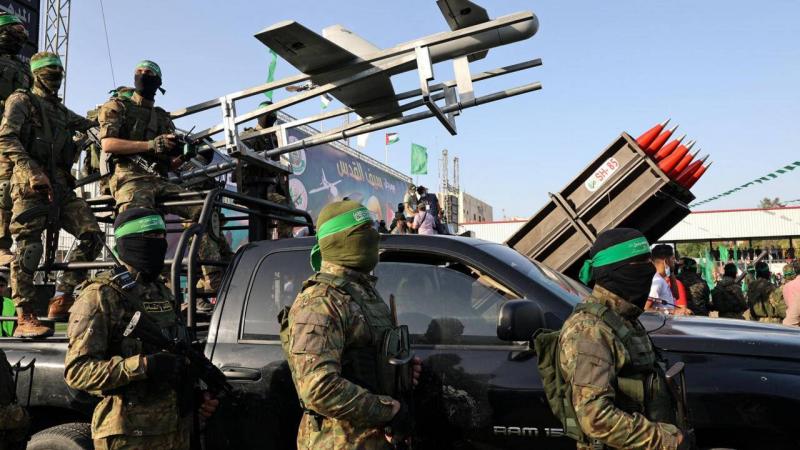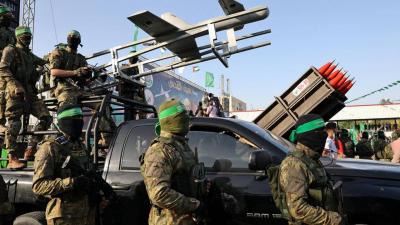Hamas is planning to leave Qatar for Iraq, amid increasing pressure from Doha and Washington on its leaders to show greater flexibility in talks aimed at a ceasefire in Gaza. The National newspaper reported that the Iraqi government agreed to this move last month, and Iran will provide protection for the movement's leaders, offices, and members in Baghdad, if this step is carried out. Sources stated that security and logistical teams from Hamas traveled to Baghdad to oversee preparations for this relocation.
This move was discussed last May by Hamas political leader Ismail Haniya and representatives from the Iraqi and Iranian governments, according to a prominent member of the Iraqi parliament with close ties to the movement. The member clarified that this potential move was also reviewed in a separate phone call last month between Haniya and Iraqi Prime Minister Mohammed Shia al-Sudani.
The Iraqi parliamentarian told The National: "There is no consensus among Iraqi political factions regarding Hamas's relocation to Baghdad. Some, especially the Kurds and some Sunnis, fear this could deepen rifts with the United States. Despite the lack of agreement, the government's decision to host Hamas will not be reversed."
He added that "Baghdad welcomes the idea of Hamas maintaining a high-level presence in Iraq," noting that the leaders of the movement have yet to determine the timing of this step. He mentioned that Hamas opened a political office this month led by senior official Mohammed al-Hafi in Baghdad, while plans are underway to launch a media office there in the coming weeks.
Another source indicated that Hamas plans to maintain some representation in Doha to oversee relations with Qatar, which is expected to be one of the main contributors to Gaza's reconstruction efforts after the war.
Should Hamas's political leaders relocate to Iraq, it could present additional challenges to ceasefire negotiations, as Qatar may exert less influence over the movement, which has controlled Gaza since 2007 and whose political leaders have lived in Doha since 2012.
Reports of this possible step come weeks after sources revealed that Hamas leaders face increasing pressure from Qatar to accept U.S. proposals for a ceasefire and the exchange of hostages and Palestinian prisoners with Israel.
Hamas remains firm in its demand for a definitive ceasefire in Gaza, the complete withdrawal of Israeli forces, the reconstruction of the strip, and the unconditional return of Palestinians displaced by the conflict. Sources noted that Hamas officials were informed that they might face expulsion from Qatar and other punitive measures, including asset freezes outside Gaza, if the movement does not show flexibility in negotiations.
This warning was delivered to Hamas's political leadership, including Haniya, during a meeting held in Doha in June with Qatari and Egyptian mediators. The talks followed a visit by CIA Director William Burns to Doha, where he plays a significant role as Washington's mediator for the ceasefire.




